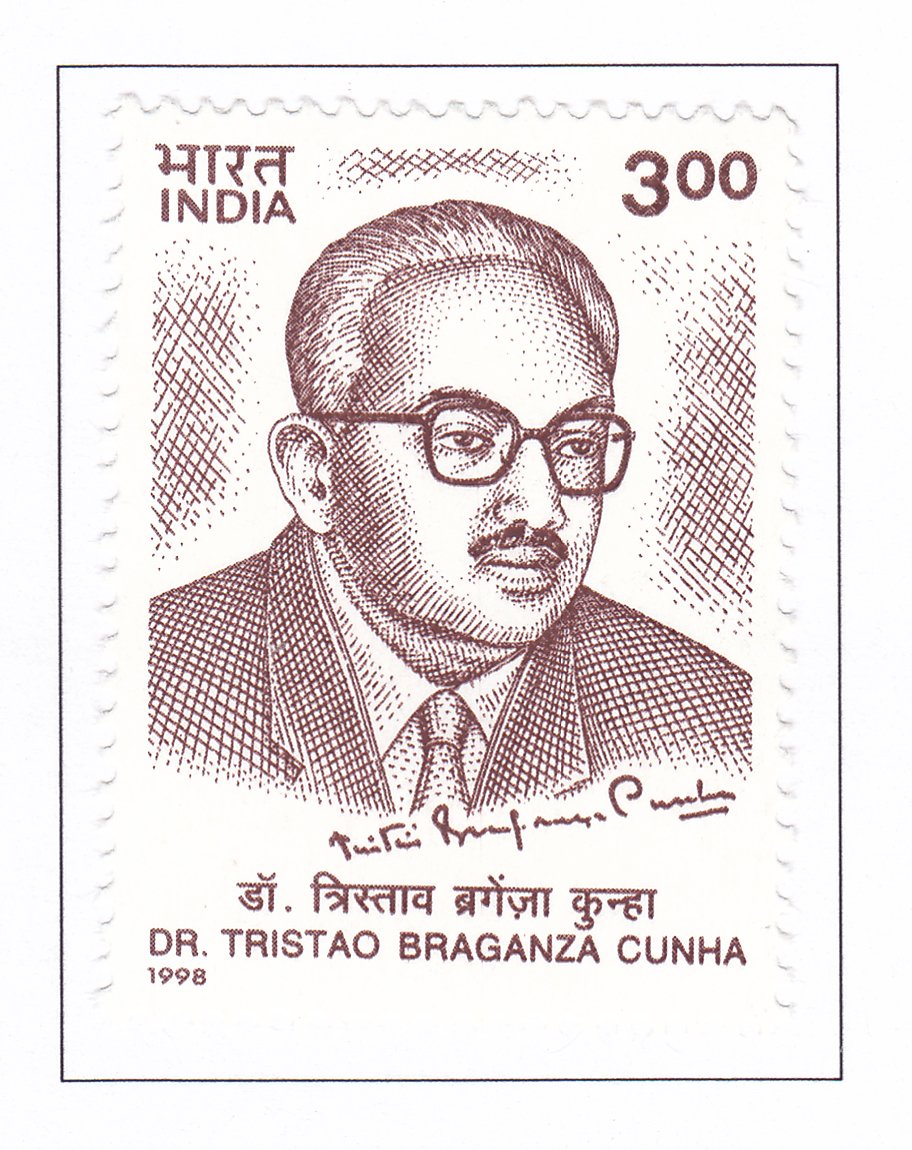Dr. Tristao Braganza Cunha (1891-1958)

Technical Data
| Date of Issue | September 26, 1998 |
|---|---|
| Denomination | Rs. 3 |
| Quantity | 400,000 |
| Perforation | comb 13 x 13½ |
| Printer | Security Printing Press, Nashik |
| Watermark | No Watermark |
| Colors | Chocolate |
| Catalog Codes |
Michel IN 1648 Stamp Number IN 1708 Yvert et Tellier IN 1413 Stanley Gibbons IN 1811 |
| Themes | Famous people | Men | Optical Instruments |
Table of Contents
Portugal, as the oldest colonial power in India, held onto its territories in the subcontinent for centuries, making it the last colonial power to depart from Indian soil. After the British established control over most of India, they allowed Portugal to retain its colonies, including Goa, Daman, Diu, Dadra, and Nagar Haveli. These territories remained under Portuguese control even as the rest of India moved toward independence.
Tristao de Braganza Cunha: The Father of Goa’s Nationalist Movement
Tristao de Braganza Cunha, often referred to as the Father of the nationalist movement in Goa, was a pivotal figure in the struggle against Portuguese colonial rule. His activism was significantly influenced by the rise of Mahatma Gandhi on the Indian political scene, which inspired him to dedicate himself to the cause of his people’s freedom.
- Influence of Mahatma Gandhi: The emergence of Mahatma Gandhi and his non-violent struggle for Indian independence profoundly impacted Tristao. He resolved to fight for the rights of Goans, who were leading subjugated lives under Portuguese rule.
- Advocacy for India’s Independence: Tristao actively contributed to French publications like Clarité and L’Humanité, where he forcefully argued for India’s independence. He also brought global attention to the atrocities committed by colonial powers, notably exposing the Jallianwala Bagh massacre in the European press.
Formation of the Goa Congress Committee
In 1928, recognizing the need for an organized movement, Tristao de Braganza Cunha founded the Goa Congress Committee. This organization spearheaded the campaign for Goa’s freedom and sought its integration with the rest of India. Tristão firmly believed that Goa, as an integral part of India, should naturally be included in the broader struggle for Indian independence.
- Affiliation with the Indian National Congress: Tristao’s efforts bore fruit when he succeeded in affiliating the Goa Congress Committee with the Indian National Congress (INC). This affiliation was formalized during the 43rd session of the INC, held in Calcutta, strengthening the ties between Goa’s freedom struggle and the wider Indian independence movement.
Legacy
Tristao de Braganza Cunha’s contributions laid the foundation for Goa’s eventual liberation from Portuguese rule. His vision of Goa as a rightful part of India was a significant force driving the movement for the region’s integration into independent India. His legacy is remembered as one of determination, intellectual rigor, and unwavering commitment to justice and freedom for his people.
The culmination of this struggle was realized in 1961, when Indian forces successfully liberated Goa, Daman, and Diu, ending centuries of Portuguese colonial rule and completing the process of India’s decolonization.
